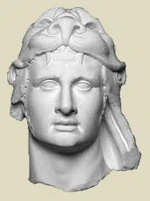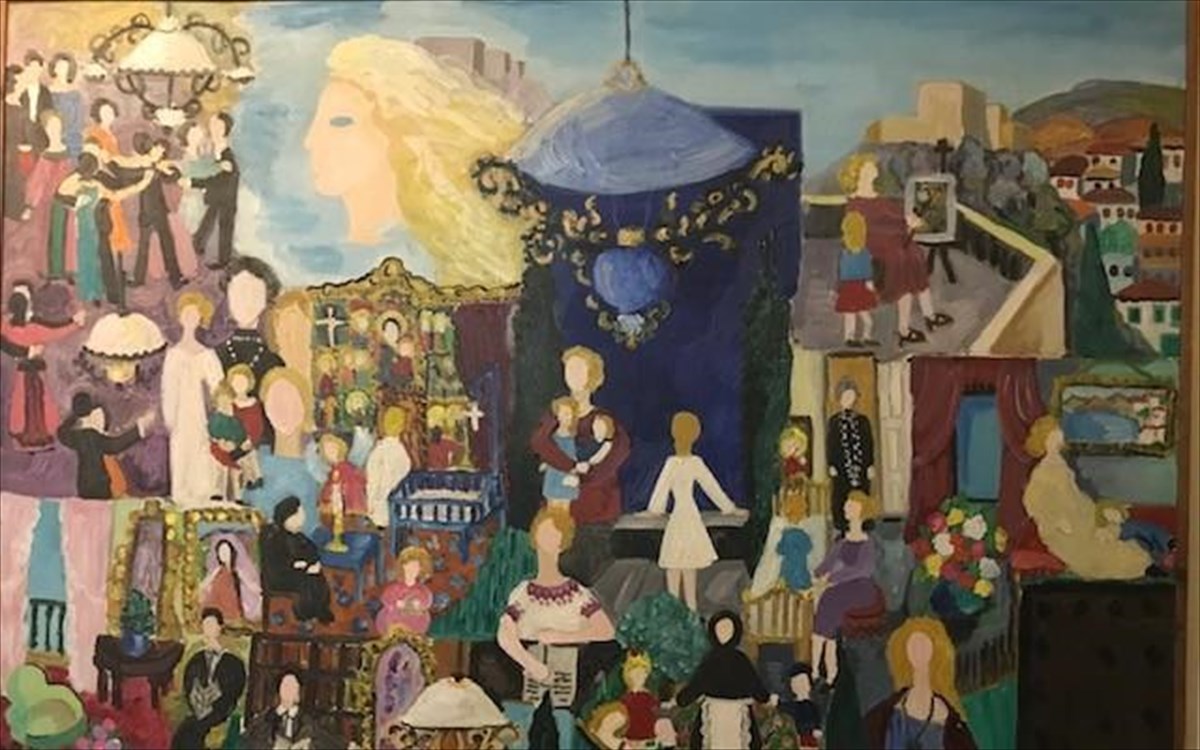ΠΩΣ Η ΤΕΧΝΗ ΕΜΠΝΕΕΤΑΙ ΑΠΟ ΤΗΝ ΙΣΤΟΡΙΑ
Μιθριδατισμός αποκαλείται η πρακτική της αυτοπροστασίας από τη δράση ενός δηλητηρίου μέσω της σταδιακής αυτοχορήγησης σε μη θανατηφόρες δόσεις.
Ο όρος προέρχεται από τον Μιθριδάτη ΣΤ', βασιλιά του Πόντου, ο οποίος εξαιτίας του μεγάλου φόβου του μήπως τον δηλητηριάσουν
χορηγούσε στον εαυτό του βαθμιαία αυξανόμενες μη θανατηφόρες δόσεις
δηλητηρίου, ώστε να αναπτύξει τελικά ανοσία. Σύμφωνα με τη μυθολογία, μετά την ήττα του από τον Πομπήιο, ο Μιθριδάτης αποπειράθηκε να αυτοκτονήσει
χρησιμοποιώντας δηλητήριο αλλά απέτυχε λόγω της ανοσίας που είχε
αναπτύξει και τελικά κατέφυγε σε έναν μισθοφόρο για να τον διαπεράσει με
σπαθί.
ο οποίος εξαιτίας του μεγάλου φόβου του μήπως τον δηλητηριάσουν
χορηγούσε στον εαυτό του βαθμιαία αυξανόμενες μη θανατηφόρες δόσεις
δηλητηρίου, ώστε να αναπτύξει τελικά ανοσία. Σύμφωνα με τη μυθολογία, μετά την ήττα του από τον Πομπήιο, ο Μιθριδάτης αποπειράθηκε να αυτοκτονήσει
χρησιμοποιώντας δηλητήριο αλλά απέτυχε λόγω της ανοσίας που είχε
αναπτύξει και τελικά κατέφυγε σε έναν μισθοφόρο για να τον διαπεράσει με
σπαθί.
Γενικά, δεν υφίσταται κάποιος πρακτικός λόγος, κάποιο πλεονέκτημα ή το παραμικρό όφελος για τη διενέργεια μιθριδατισμού εκτός για επαγγελματικούς ή παρόμοιους λόγους, όπως για παράδειγμα από υπαλλήλους ζωολογικών κήπων, ερευνητές και καλλιτέχνες του τσίρκου οι οποίοι έρχονται σε στενή επαφή με δηλητηριώδη ζώα. Ο μιθριδατισμός δοκιμάστηκε με επιτυχία στην Αυστραλία και τη Βραζιλία καθώς επιτεύχθηκε πλήρης ανοσία ακόμη και σε πολλαπλά τσιμπήματα από δηλητηριώδεις κόμπρες και οχιές. Ο Μπιλ Χάαστ (Bill Haast) αυτοανοσοποιήθηκε με επιτυχία στο δηλητήριο διαφόρων ειδών δηλητηριωδών φιδιών.
Ο όρος χρησιμοποιείται και μεταφορικά για να περιγράψει τη σταδιακή εξοικείωση και αποδοχή πραγμάτων που προηγουμένως θεωρούνταν ιδιαίτερα επικίνδυνα.
 Ο Άλφρεντ Χάουζμαν (Alfred Edward Housman), στο ποίημά του Τέρενς, αυτό είναι ανοησία ("Terence, this is stupid stuff"), εκδόθηκε αρχικά στη συλλογή A Shropshire Lad), χρησιμοποιεί τον μιθριδατισμό μεταφορικά για τα οφέλη που προσφέρει η σοβαρή ποίηση στον αναγνώστη. Το τελικό του τμήμα αποτελεί ποιητική απόδοση του μύθου του Μιθριδάτη.
Ο Άλφρεντ Χάουζμαν (Alfred Edward Housman), στο ποίημά του Τέρενς, αυτό είναι ανοησία ("Terence, this is stupid stuff"), εκδόθηκε αρχικά στη συλλογή A Shropshire Lad), χρησιμοποιεί τον μιθριδατισμό μεταφορικά για τα οφέλη που προσφέρει η σοβαρή ποίηση στον αναγνώστη. Το τελικό του τμήμα αποτελεί ποιητική απόδοση του μύθου του Μιθριδάτη.
Ο όρος προέρχεται από τον Μιθριδάτη ΣΤ', βασιλιά του Πόντου,
 ο οποίος εξαιτίας του μεγάλου φόβου του μήπως τον δηλητηριάσουν
χορηγούσε στον εαυτό του βαθμιαία αυξανόμενες μη θανατηφόρες δόσεις
δηλητηρίου, ώστε να αναπτύξει τελικά ανοσία. Σύμφωνα με τη μυθολογία, μετά την ήττα του από τον Πομπήιο, ο Μιθριδάτης αποπειράθηκε να αυτοκτονήσει
χρησιμοποιώντας δηλητήριο αλλά απέτυχε λόγω της ανοσίας που είχε
αναπτύξει και τελικά κατέφυγε σε έναν μισθοφόρο για να τον διαπεράσει με
σπαθί.
ο οποίος εξαιτίας του μεγάλου φόβου του μήπως τον δηλητηριάσουν
χορηγούσε στον εαυτό του βαθμιαία αυξανόμενες μη θανατηφόρες δόσεις
δηλητηρίου, ώστε να αναπτύξει τελικά ανοσία. Σύμφωνα με τη μυθολογία, μετά την ήττα του από τον Πομπήιο, ο Μιθριδάτης αποπειράθηκε να αυτοκτονήσει
χρησιμοποιώντας δηλητήριο αλλά απέτυχε λόγω της ανοσίας που είχε
αναπτύξει και τελικά κατέφυγε σε έναν μισθοφόρο για να τον διαπεράσει με
σπαθί.
Γενικά, δεν υφίσταται κάποιος πρακτικός λόγος, κάποιο πλεονέκτημα ή το παραμικρό όφελος για τη διενέργεια μιθριδατισμού εκτός για επαγγελματικούς ή παρόμοιους λόγους, όπως για παράδειγμα από υπαλλήλους ζωολογικών κήπων, ερευνητές και καλλιτέχνες του τσίρκου οι οποίοι έρχονται σε στενή επαφή με δηλητηριώδη ζώα. Ο μιθριδατισμός δοκιμάστηκε με επιτυχία στην Αυστραλία και τη Βραζιλία καθώς επιτεύχθηκε πλήρης ανοσία ακόμη και σε πολλαπλά τσιμπήματα από δηλητηριώδεις κόμπρες και οχιές. Ο Μπιλ Χάαστ (Bill Haast) αυτοανοσοποιήθηκε με επιτυχία στο δηλητήριο διαφόρων ειδών δηλητηριωδών φιδιών.
Ο όρος χρησιμοποιείται και μεταφορικά για να περιγράψει τη σταδιακή εξοικείωση και αποδοχή πραγμάτων που προηγουμένως θεωρούνταν ιδιαίτερα επικίνδυνα.
Στη λογοτεχνία και την ποίηση
Ο μιθριδατισμός έχει χρησιμοποιηθεί ως μέρος της πλοκής σε διάφορα λογοτεχνικά έργα και κινηματογραφικές ταινίες, μεταξύ άλλων στον Κόμη του Μοντεχρίστο του Δουμά και στην Πριγκίπισσα νύφη του Ουίλιαμ Γκόλντμαν (William Goldman).
AΡΙΣΤΟΥΡΓΗΜΑΤΑ ΤΗΣ ΠΑΓΚΟΣΜΙΑΣ ΛΟΓΟΤΕΧΝΙΑΣ
Alfred Edward Housman: "Terence, this is stupid stuff" (A Shropshire Lad LXII)
1 "Terence, this is stupid stuff:
2 You eat your victuals fast enough;
3 There can't be much amiss, 'tis clear,
4 To see the rate you drink your beer.
5 But oh, good Lord, the verse you make,
6 It gives a chap the belly-ache.
7 The cow, the old cow, she is dead;
8 It sleeps well, the horned head:
9 We poor lads, 'tis our turn now
10 To hear such tunes as killed the cow.
11 Pretty friendship 'tis to rhyme
12 Your friends to death before their time
13 Moping melancholy mad:
14 Come, pipe a tune to dance to, lad."
15 Why, if 'tis dancing you would be,
16 There's brisker pipes than poetry.
17 Say, for what were hop-yards meant,
18 Or why was Burton built on Trent?
19 Oh many a peer of England brews
20 Livelier liquor than the Muse,
21 And malt does more than Milton can
22 To justify God's ways to man.
23 Ale, man, ale's the stuff to drink
24 For fellows whom it hurts to think:
25 Look into the pewter pot
26 To see the world as the world's not.
27 And faith, 'tis pleasant till 'tis past:
28 The mischief is that 'twill not last.
29 Oh I have been to Ludlow fair
30 And left my necktie God knows where,
31 And carried half-way home, or near,
32 Pints and quarts of Ludlow beer:
33 Then the world seemed none so bad,
34 And I myself a sterling lad;
35 And down in lovely muck I've lain,
36 Happy till I woke again.
37 Then I saw the morning sky:
38 Heigho, the tale was all a lie;
39 The world, it was the old world yet,
40 I was I, my things were wet,
41 And nothing now remained to do
42 But begin the game anew.
43 Therefore, since the world has still
44 Much good, but much less good than ill,
45 And while the sun and moon endure
46 Luck's a chance, but trouble's sure,
47 I'd face it as a wise man would,
48 And train for ill and not for good.
49 'Tis true, the stuff I bring for sale
50 Is not so brisk a brew as ale:
51 Out of a stem that scored the hand
52 I wrung it in a weary land.
53 But take it: if the smack is sour,
54 The better for the embittered hour;
55 It should do good to heart and head
56 When your soul is in my soul's stead;
57 And I will friend you, if I may,
58 In the dark and cloudy day.
59 There was a king reigned in the East:
60 There, when kings will sit to feast,
61 They get their fill before they think
62 With poisoned meat and poisoned drink.
63 He gathered all that springs to birth
64 From the many-venomed earth;
65 First a little, thence to more,
66 He sampled all her killing store;
67 And easy, smiling, seasoned sound,
68 Sate the king when healths went round.
69 They put arsenic in his meat
70 And stared aghast to watch him eat;
71 They poured strychnine in his cup
72 And shook to see him drink it up:
73 They shook, they stared as white's their shirt:
74 Them it was their poison hurt.
75 --I tell the tale that I heard told.
76 Mithridates, he died old.
******************************
"Terence, this is stupid stuff" , a Summary
Source : www.enotes.com
“Terence, This Is Stupid Stuff,” poem LXII of A Shropshire Lad, is commonly considered Housman’s apologia. In this next-to-last poem in A Shropshire Lad, Housman moves toward the conclusion of his presentation of his many themes and offers justification for the melancholy tone of his poetry.
The poem is structured as a dialogue between Terence, the poet figure, and one of Terence’s friends, who initially chides Terence for writing poetry that is somber and thought provoking rather than uplifting and celebratory. The friend warns Terence, jestingly, that he is driving his friends “Moping melancholy mad” with his serious poetry, and that they would prefer something happier, “a tune to dance to.”
Terence responds that the purpose of his poetry is not to entertain but to strengthen and instruct. In fact, Terence suggests that if all that his friends want to do is to have a good time, then there is dancing and drinking for them in which to participate, but that these are hardly answers for life’s many problems. Terence claims to know that from personal experience. Therefore, Terence explains, because life is full of uncertainties, heartbreak, and pain, people should prepare themselves accordingly. His poetry, then, is written to prepare each person for “the dark and cloudy day” that each one will surely face.
Terence concludes his response to his friend’s complaint by relating the ancient tale of King Mithridates, who, anticipating that rivals would attempt to poison him, took small amounts of arsenic and strychnine and developed an immunity to them. Thus, when the attempted assassination occurred, Mithridates was prepared to ward off the ill effects of the poison. Likewise, Terence insists that the poetry will help immunize his readers against “the embittered hour” when they come face to face with adversity.
In “Terence, This Is Stupid Stuff,” Housman reemphasizes his theme of stoicism and suggests, once again, that life is made bearable by concentrating on its tragedies, and by doing so, one learns to live in the face of adversity.




Δεν υπάρχουν σχόλια:
Δημοσίευση σχολίου